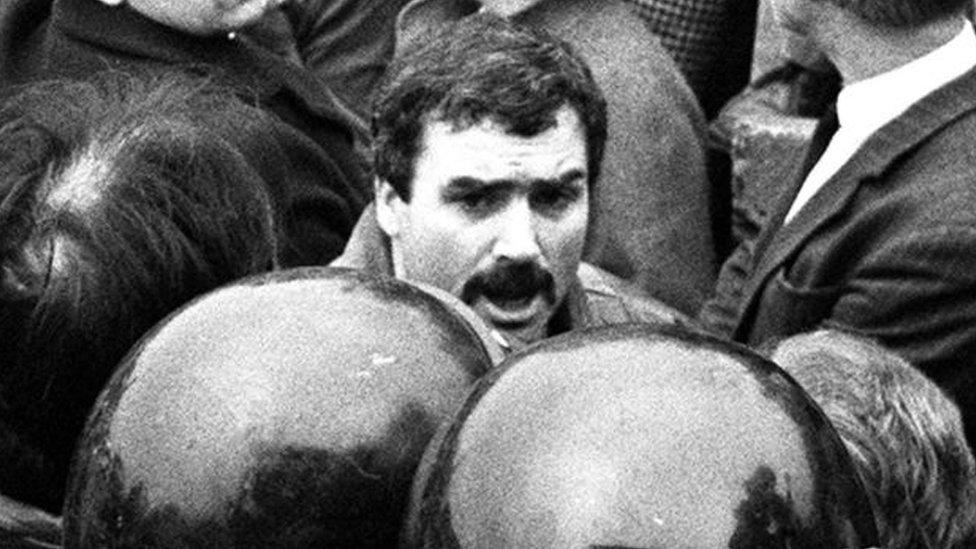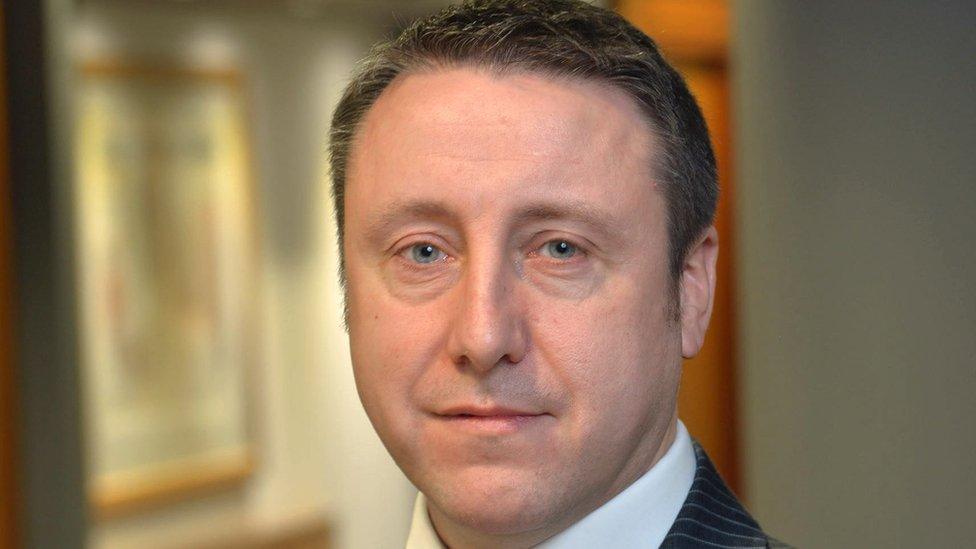Stakeknife: Soldiers who handled agent in IRA will not be prosecuted
- Published

Fred Scappaticci denied he was an Army agent within the IRA
Two retired soldiers who handled the Army agent within the IRA known as Stakeknife are not to be prosecuted in connection with a number of kidnappings and murders.
The Public Prosecution Service (PPS) said the evidence was insufficient.
It also decided two people, who were IRA members at the time of the incidents in the early 1980s, would likewise not face any charges.
Stakeknife is believed to have been Freddie Scappaticci, who died in 2023.
The agent's actions have been the subject of a six-year investigation known as Operation Kenova.
It began in 2016 under Jon Boutcher, who is now chief constable of the Police Service of Northern Ireland.
It examined Stakeknife's activities within the IRA's internal security unit, which was responsible for killing alleged informers, and the role of the Army.
It has cost about £40m.
The PPS said the decisions covered 10 incidents, including four IRA murders of alleged spies between 1981 and 1984.
It did not name the victims "to avoid causing further trauma" to their families.
The main allegations against the Army veterans included failing to take "preventative action" in respect of the agent's activities.
It was also claimed they allowed Stakeknife to "participate in activity beyond which was permitted in the relevant guidance".
Evidence 'insufficient'
Director of Public Prosecutions Stephen Herron said the evidence against all four individuals was insufficient "to provide a reasonable prospect of conviction".
In respect of the victims' relatives, he added: "I appreciate today's decisions will no doubt cause upset and pain.
"I can offer reassurance these decisions were considered impartially and wholly independently by an experienced team of senior prosecutors.
"All victims and families connected to the incidents will have received a detailed written explanation of the reasons for the decisions, along with an offer to meet."

Stephen Herron called the evidence against the four individuals as "insufficient"
The head of Operation Kenova, Sir Iain Livingstone, said it is important to stress the PPS decisions relate to individuals who are "supplementary to the focus of the operation - the activities of an alleged army agent codenamed Stakeknife".
He added: "The position remains that Kenova presented strong and compelling evidence in relation to that individual.
"Legacy investigations and prosecutions can be extremely challenging, but I understand that today's decisions will be deeply disappointing.
"We remain committed to delivering the truth to the families affected by these decisions through individual family reports which will detail our investigative findings in addition to the interim and final Kenova reports."
'Not a good day for justice'
In a statement, KRW Law stated they are not surprised by the decisions and have requested they be reviewed by the PPS.
The Belfast solicitor's firm act in one of the cases which involves the former soldiers.
"The detailed notices issued by the PPS purport to explain why decisions were taken not to prosecute.
"We reject the explanation," they said.
"They fall short on what was expected in terms of detailed analysis and raise more questions than answers. This is not a good day for justice."
The decisions are the latest to be reached by the PPS in respect of Operation Kenova.
In December, it said a total of 15 people would not face court.
Further decisions in all remaining cases are due to be made later this month, before a report on the investigation is published on 8 March.
Related topics
- Published6 December 2023

- Published11 April 2023
